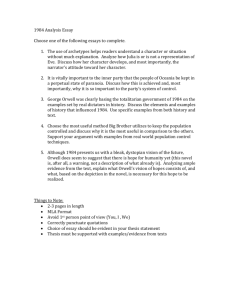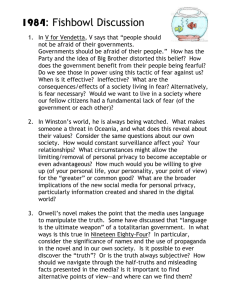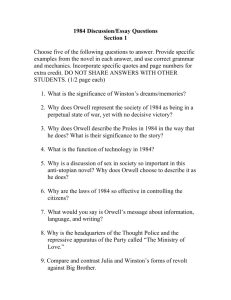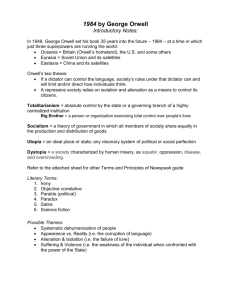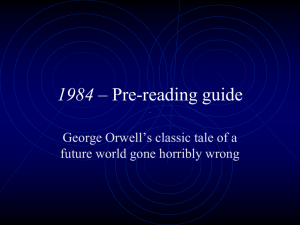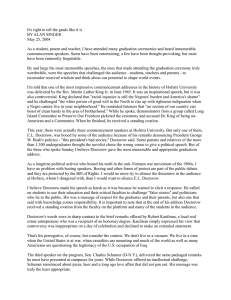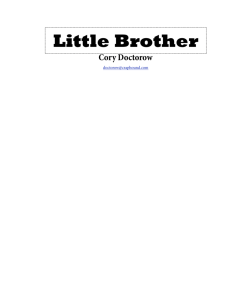English 10E Summer Reading 2015 For this summer's reading, we
advertisement
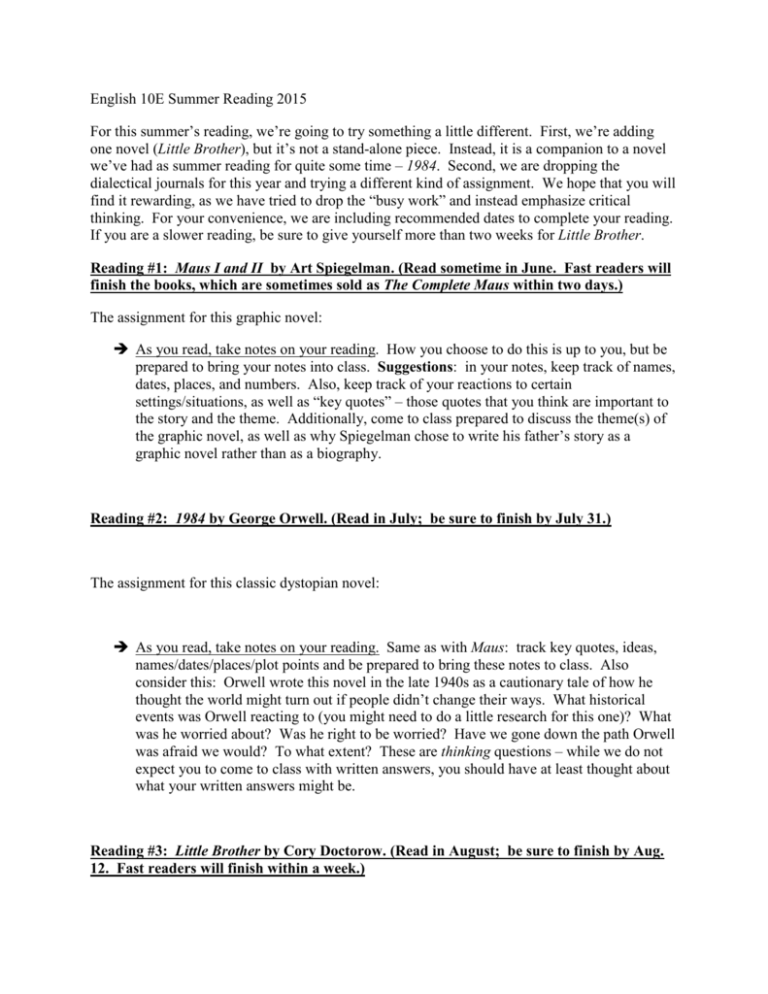
English 10E Summer Reading 2015 For this summer’s reading, we’re going to try something a little different. First, we’re adding one novel (Little Brother), but it’s not a stand-alone piece. Instead, it is a companion to a novel we’ve had as summer reading for quite some time – 1984. Second, we are dropping the dialectical journals for this year and trying a different kind of assignment. We hope that you will find it rewarding, as we have tried to drop the “busy work” and instead emphasize critical thinking. For your convenience, we are including recommended dates to complete your reading. If you are a slower reading, be sure to give yourself more than two weeks for Little Brother. Reading #1: Maus I and II by Art Spiegelman. (Read sometime in June. Fast readers will finish the books, which are sometimes sold as The Complete Maus within two days.) The assignment for this graphic novel: As you read, take notes on your reading. How you choose to do this is up to you, but be prepared to bring your notes into class. Suggestions: in your notes, keep track of names, dates, places, and numbers. Also, keep track of your reactions to certain settings/situations, as well as “key quotes” – those quotes that you think are important to the story and the theme. Additionally, come to class prepared to discuss the theme(s) of the graphic novel, as well as why Spiegelman chose to write his father’s story as a graphic novel rather than as a biography. Reading #2: 1984 by George Orwell. (Read in July; be sure to finish by July 31.) The assignment for this classic dystopian novel: As you read, take notes on your reading. Same as with Maus: track key quotes, ideas, names/dates/places/plot points and be prepared to bring these notes to class. Also consider this: Orwell wrote this novel in the late 1940s as a cautionary tale of how he thought the world might turn out if people didn’t change their ways. What historical events was Orwell reacting to (you might need to do a little research for this one)? What was he worried about? Was he right to be worried? Have we gone down the path Orwell was afraid we would? To what extent? These are thinking questions – while we do not expect you to come to class with written answers, you should have at least thought about what your written answers might be. Reading #3: Little Brother by Cory Doctorow. (Read in August; be sure to finish by Aug. 12. Fast readers will finish within a week.) The assignment for this modern young adult novel: As you read, take notes on your reading. (Same as with the other two.) For this novel, consider this very important question and be prepared to write an essay on it: How is Doctorow influenced by Orwell in the crafting and creation of the scenarios in Little Brother? In other words, what specific themes/events in 1984 inform Doctorow’s story? Also, how realistic is Doctorow’s portrayal of events? Could these things happen?
